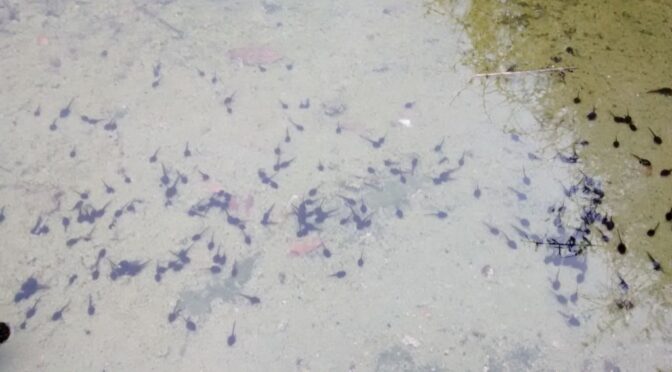Views: 1207
All drinking troughs and water basins have been equipped with small ramps, allowing wildlife to access water safely. Now, birds, reptiles, and insects have a secure way in and out. The area is full of green toads. This farmland is slowly turning into a biological sanctuary.
Balearic green toads have faced difficult decades due to a lack of breeding spaces. However, thanks to the proactive efforts of some farmers and rural landowners, new hope is emerging. Sometimes, complex problems have simple solutions.
This amphibian is believed to have reached the island in prehistoric times, possibly alongside travelers from Corsica or Italy, where the species is well established. Usually solitary, the toads suddenly become very sociable when the rains come. Their bodies awaken, and they gather around water points, engaging in their mating rituals.
By adapting livestock drinking troughs for wildlife, these water sources become lifelines in the scorching summer months, when many creatures struggle to find water. It doesn’t require huge investments—just the will to improve the world around us.
Spring has also ignited the growth of many plants. The clovers growing alongside the roads create a bright yellow carpet, adding beauty to Menorca’s countryside.
But it wasn’t always this way. 25 years ago, these roadsides were constantly sprayed with chemicals, preventing plants from growing. The Biosphere Reserve principles and new environmental regulations ended this practice, putting a stop to miles of blackened, lifeless road edges.
It took years of persistence to change this. Officials insisted there was no viable alternative to keeping vegetation under control. But for nearly a quarter of a century, roadsides have been maintained through mechanical means, resulting in safe, thriving, and beautiful landscapes. In the end, the solution was simple.
The Son Bou wetlands are also bursting with life. The edges are filled with white flowers. Coots call from the reed beds, and ducks cut through the air with their energetic flights. In the shallow waters where the marsh meets farmland, countless small fish find shelter.
As the Albufera des Grau lagoon becomes increasingly saline and most wetlands dry up in summer due to water shortages, Son Bou has become more important than ever. More bird species gather here, and some now rely on this area as their only nesting ground.
In the past, this space had to be defended from urbanization, illegal dumping, drainage attempts, and threats to the dunes. The odds were against it, but the site was preserved and has regained much of its lost splendor.
Despite its extraordinary environmental and touristic value, some still see the wetland as a nuisance rather than a treasure. Future interventions must be carefully monitored.
Because life isn’t just about the peak summer season. Luckily, there is also the magic of spring.
(This text is an adaptation of the original article published by Miquel Camps, as coordinator of territorial policy for the GOB, in the Menorca newspaper on 31/03/2025).

